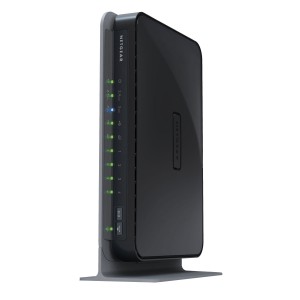Blair Levin is a broadband czar with a lot on his mind, and he unloaded a lot of it at a public conference this week. He’s been spending his summer wading into more than 8,500 pages of comments the Federal Communications Commission (FCC) has received on the question of how to formulate a national broadband plan. Individual consumers using the submission form like a blog’s comment section was the least of his concerns. Levin has grown far less optimistic about the value of the comments as he digs deep into the pile before him. His conclusion: at least some of the companies and groups that can afford the most expensive lawyers and professional presentations essentially pulled off an all-nighter let’s-wing-it-effort.
Levin particularly called out a “large telco” that submitted an extensive paper promoting its position loaded with intellectual sloppiness, right down to including a slide that contradicted the phone company’s own arguments.
Levin also claimed a lot of the submissions were loaded with platitudes and consensus about a model broadband society everyone would like to see, with no road map to actually achieve that goal.
The broadband czar reserved special criticism for the locust-like lobbyists who have descended on the comment process with self-serving proposals that are crafted with a “mine first” mentality that cuts out other players. Levin claimed providers are much more interested in protecting their existing market and business plans before they consider how changes in the marketplace can increase the number of customers available to them. That’s a mentality consumers are familiar with as broadband providers attempt to protect their video business models with attempts to limit or overcharge for broadband access.
He was upset that plans to open up new spectrum for next generation broadband services were met with resistance from other providers. Wireless spectrum expansion for broadband projects was promoted as “essential” in one proposal, and attacked as a dangerous threat in another. Levin characterized the turf war as, “get [the spectrum] from somebody else.”
Many of the major providers are treating the national broadband plan as a giant piggy bank, waiting to shower them with cash for vague projects or goals. “Look I’ve got to say this — we are not going to be Santa Claus,” Levin said. “There’s actually very little in the 8,500-something pages that moves the ball forward,” Levin said.
Consumer advocacy group Free Press, which submitted an extensive pro-consumer broadband plan of its own, which Stop the Cap! supports, agreed with much of what Levin complained about in a new filing today, in response to Levin’s remarks.
Derek Turner, research director at Free Press, said “the FCC should not be duped by the incumbents’ self-serving claims. The national broadband plan must be built on a record of meaningful data and analysis — not on flimsy evidence and discredited arguments.”
Turner was pointing to telecommunications lobbying policies which reach not only the FCC, but elected officials.
Indeed, they are repeats of the same mantra over and over — “deregulation.”
“Incumbents have the largest pool of resources and broadband data at their fingertips, but their comments offer nothing more than the same old tired pro-deregulation arguments. It is clear from their recommendations that the phone and cable companies want the national broadband plan to simply be a ‘do-nothing’ plan — a strategy that has already proven to be an epic failure for consumers,” Turner added.
Incumbent carriers keep that pool of resources and data close to their vests, refusing to make it widely available for detailed independent analysis. Instead, their “government affairs” lobbyists engage in astroturfing efforts to hoodwink consumers and policymakers with biased data and maps that help sell their agenda of deregulation and public financing of needed broadband projects, with little or no oversight or conditions. Most important, they universally characterize today’s broadband offerings as excellent and evidence that the “marketplace is working,” even as the United States falls further behind other nations in access, speed, and low pricing.
While Levin is right to be exasperated at the special interest folderol, the FCC’s previous hands-off attitude during the Clinton and Bush Administrations set the stage for the ballet being performed today. A deregulatory framework, started by the Clinton Administration and embraced on entirely new levels by the Bush Administration, combined with an agency timid to get involved in oversight potentially raising the ire of Congress, made it possible for 8,500 pages of generic happy talk and thinly disguised grant applications to weigh heavily on his desk.
Caught in the middle, as usual, are consumers. Most of them were the ones typing their comments into the FCC comments submission page in “the big box,” instead of uploading a professionally prepared multi-hundred page PDF document. Their needs are simple: affordable, fast, widespread broadband, with Net Neutrality embraced and Internet Overcharging schemes banned. For those who already have the service, they want the FCC to make sure providers don’t leverage their monopoly or duopoly into a Money Party. For those who don’t, they simply wonder how the most powerful country on earth cannot “get it done” without 8,500 pages and hundreds of millions of dollars potentially flushed away to feed special interest coffers while their needs are ignored or met with “this is good enough service for you” condescension.
Of course, no matter what Levin thinks, a lot of those providers with mixed up slides and Red Bull fueling their all-nighters know the FCC doesn’t have the last word on anything. They’ll take the dog and pony show straight to Congress, with checks in hand to lubricate the conversation. Making sure Congress ultimately listens to their constituents will be up to voters like you and I.


 Subscribe
Subscribe







